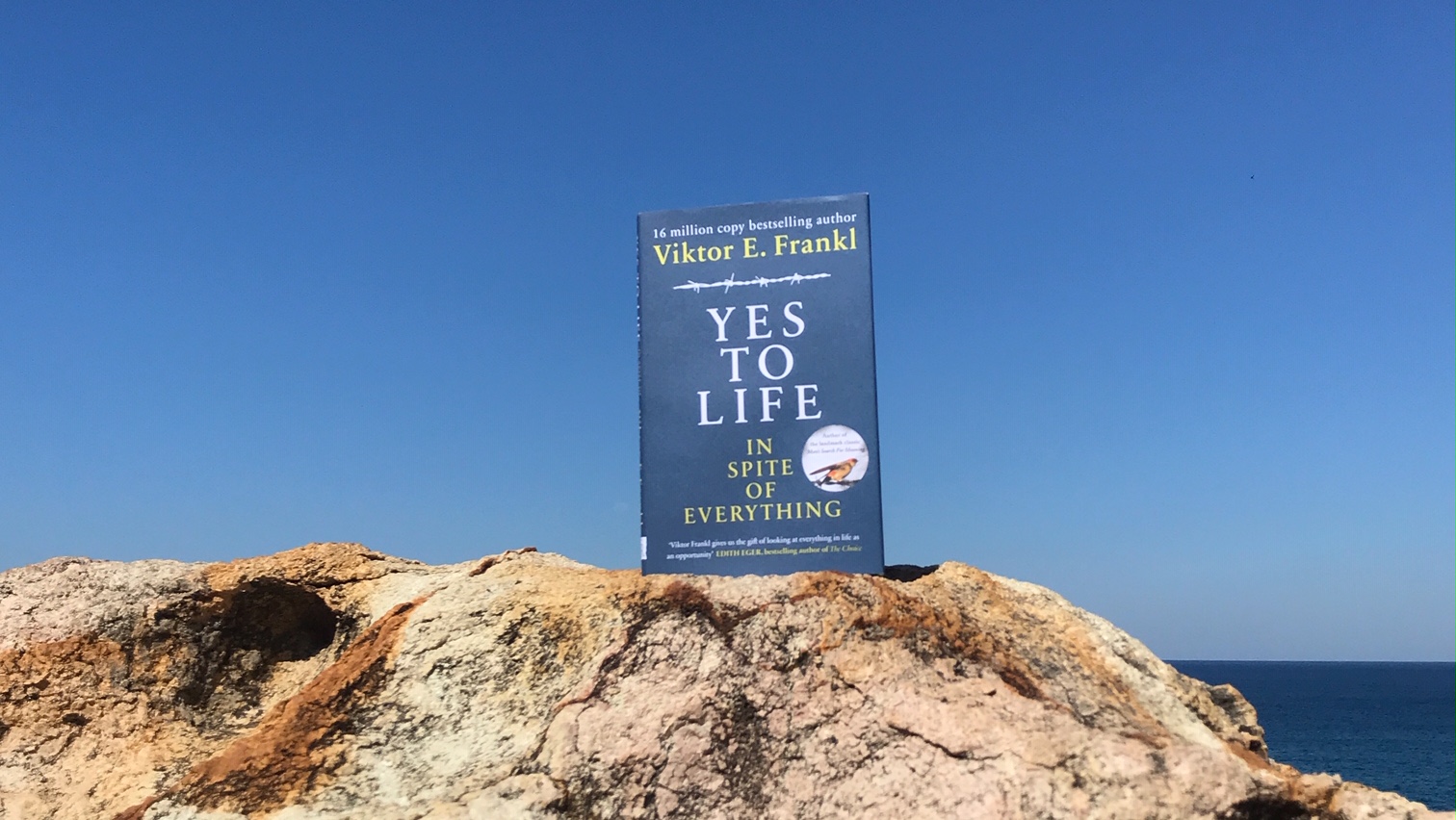A new book from Viktor Frankl, Yes to Life: In Spite of Everything, sees three of the famous psychotherapist’s early lectures on life-meaning published in English for the first time.

For those who have not come across Viktor Frankl’s work before, he is most well-known for his memoir Man’s Search for Meaning in which he wrote about his time in the concentration camps of Nazi Germany during WW2, and how he and his fellow prisoners coped with the unimaginable hardship and trauma.
Frankl survived the death camps – and lived for another 50 years developing, speaking about and teaching his meaning-centred psychotherapeutic approach, Logotherapy. He published 39 books and has been translated into 50 languages.
So what’s with the new book? What has not been captured in the other 39 books?
Rawness. Emergence. Creation.
Yes to Life: In Spite of Everything contains three lectures that Frankl gave in Vienna in the year after the war ended and his freedom from the Turkheim camp in 1945. The lectures were published in German at the time – and before the release of his memoir in 1946.

In the lectures, Frankl unveils his theory that we derive meaning in life through action (creative), experiencing nature, art, love (experiential) and hardship/challenges (suffering). He draws on his experiences as a doctor and prisoner to illustrate how meaning is not found in asking questions of life – but rather through each individual answering the question life has for us:
‘What is life asking me to do right now to contribute to humanity?’
To be honest, I found Yes to Life a bit more of a slog to read than Man’s Search For Meaning. The lectures are from a specific period in time and except for the lecture drawing on his time as a prisoner, it is much drier and more cerebral. I found this book veered more into philosophy than self-help.
Which doesn’t mean it’s not without its stories and a narrative. Frankl had only been liberated nine months earlier – to discover his wife and parents had been murdered by the Nazi regime – so the context of the lectures gives them an almost heroic narrative. Frankl’s story frames the lectures: I have endured untold suffering, and yet I stand before you to show that no matter whatever your hardship, you can cope, you can say Yes to life.
The question for us right now is – how can these lectures help us move through our own challenging times?
Yes to Life is a reminder that while we draw breath – and are conscious – we can respond to life’s questions. As Frankl points out, every single moment contains thousands of possibilities and we choose to actualise only one of them. And then again in the next moment, one more. We are the drivers in our own lives.
While I found some of the material a little challenging (the discussion of suffering was a tad too valorising at times and the choose-life-no-matter-what discussion of suicide sits uncomfortably against our contemporary discussions of euthanasia), it sparked valuable questions around my own beliefs and attitudes to life and death. The exploration deepened my understanding of what life is.
‘What is life asking me to do right now to contribute to the earth?’
Frankl’s words continue to give me a greater appreciation of life right now. My inconveniences do not stack up to the hardship of prisoners of war – and yet, the basics for how to live a meaningful life still apply.

Create
Take action and use the skills, knowledge, talents, and resources I have to create and contribute to life. Whether it’s responding to climate change, BLM or how to pivot careers ethically in an uncertain economy, I still have choices in my actions.

Experience life and love
Acknowledge, savour, celebrate, champion the good that people do, the beauty in the world. Immerse ourselves in art, music, theatre and all expressions of culture that remind us “This is what life is”. Appreciate the uniqueness of others and great work that is done, the little kindnesses and love shown everyday.

Rise up
Use hardship/challenges to stand higher – certainly the most challenging of the ways to a meaningful life – but when the other avenues are not available, being able to identify and act on the choices still available gives us the strength to live.
And I can always answer the question: ‘What is life asking me to do right now?’

